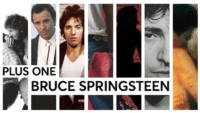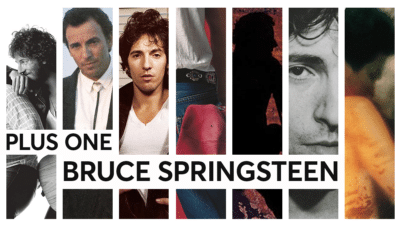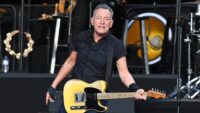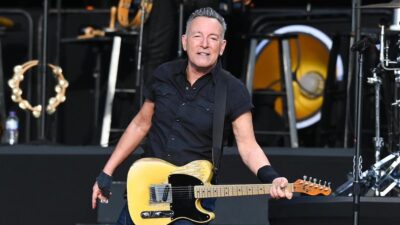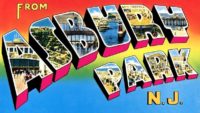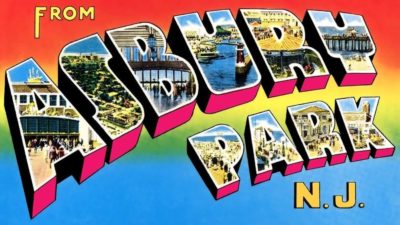Music
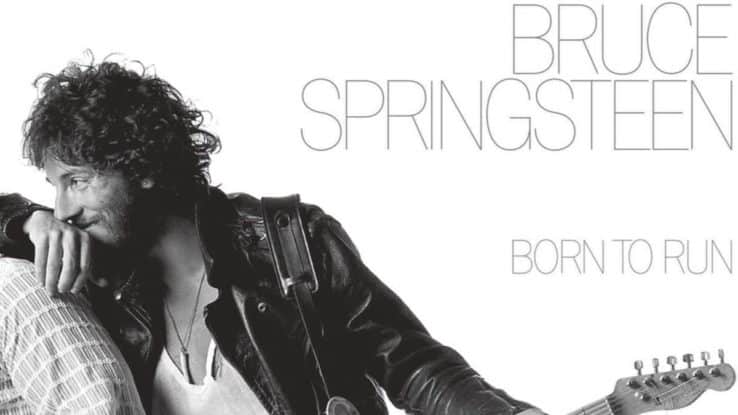
Feature
Born To Run – The greatest Springsteen album of all time
The people have voted and the results are in: Born To Run is your No.1 Springsteen album ever. We look back at why its legacy endures
Ask any Bruce fan for their favourite record and you’ll probably get a lengthy answer. Tunnel Of Love for its wonderfully moody synths, Nebraska for its monochrome desolation, Born In The USA for its stadium-packing bombast, The River for its everything-and-the-kitchen-sink ride through rock n’ roll history, Darkness On The Edge Of Town for its disillusioned fury. Depending on the mood, it’s one or all of them.
Favourites are flitting, but what is indisputable – and our Instagram poll only backs this up further – is that only one album can be called Bruce’s most important album: Born To Run. When the average bystander thinks of Bruce, they think of the headband and denim Born In The USA Bruce. But to the die-hard masses, the leather jacket and battered Telecaster, the backstreet romanticism, the irrepressible belief, the perpetual dream of something better – that’s Bruce Springsteen.
The romanticism of Born To Run starts before you hear a note. It’s in that easy grin and relaxed pose, Bruce leaning on Clarence Clemons’ shoulder, their camaraderie laid bare for the world to see. Oh to be brothers like Bruce and the Big Man. But the real story of the album begins long before that. It’s the story of a man born to only ever do one thing and the realisation that he was running out of road.
By the time Bruce came to record Born To Run, he was on his last chance. His first two albums, Greetings From Asbury Park, N.J and The Wild, The Innocent & The E-Street Shuffle, had earned positive reviews but sold poorly. Whatever this scruffy Dylan wannabe was trying for, the people weren’t buying it. The kind of pressure that put on Bruce’s next move isn’t the kind that most people would channel into their finest work, and for the longest time things weren’t looking great.
For one, Bruce had a sound in his head that he just couldn’t get out. He was aiming for a Phil Spector-esque wall of sound, but his vision was evaporating somewhere between his brain and his band. Enter Rolling Stone journalist Jon Landau – the man who’d famously said “I saw rock n’ roll future and its name is Bruce Springsteen” – and Bruce’s old compatriot Steven Van Zandt. Between them and engineer Jimmy Iovine, they righted the ship and helped shape Springsteen’s songs into the desired form: “Roy Orbison singing Bob Dylan, produced by Phil Spector” as Bruce himself put it.
As the legend goes, Springsteen was on tour when the first pressings arrived. Jimmy Iovine brought a copy to him and the two found a quiet corner of a record store to put it on. Bruce hated it so much that he threw it in the pool at his hotel. Time would prove him 100 per cent wrong.
Born To Run plays out like a Broadway musical directed by Martin Scorsese. The piano and harmonica intro that ushers in ‘Thunder Road’ feels like a curtain coming up on some unspecified suburban street, our first introduction to a protagonist pleading with the love of his life to run into the night “to case the promised land”. He’s a dreamer but he’s utterly convincing, fully believing every oath he swears.
If ‘Thunder Road’ introduces our Tony and Maria, ‘Tenth Avenue Freeze Out’ calls out our Sharks and Jets. It’s all the easy confidence and fraternal love from the album cover in song form, particularly hailing the significance of Bruce’s lieutenant Clarence Clemons with the immortal line “The change was made uptown and the Big Man joined the band.” Since Clemons’ death in 2011, the song has become a nightly tribute to the Big Man, made all the more poignant by his nephew Jake now filling those considerable shoes.
The themes of escape from ‘Thunder Road’ return in earnest on ‘Night’, a celebration of purging the daily grind under cover of darkness, man and machine fleeing the world together, running towards some idealised destination.
But the night takes on a different aspect on the tense epic ‘Backstreets’. All the dreams and wonder of the three songs before evaporate as the narrator and his best friend run wild through a city of broken hearts and broken dreams. The step up in key is like an urgent denouement of everything that couldn’t be supressed, Bruce screaming that “at night it seemed you could hear that whole damn city crying.” It’s painful to hear the dream die, their friendship destroyed by “the lies that killed us, the truth that ran us down.” Where Bruce would repeatedly sing about unbreakable bonds between brothers, on ‘Backstreets’ nothing can survive a world that just doesn’t care.
If side A ends in despair, side B comes blasting out of the traps like it’s on fire. Every inch of ‘Born To Run’ sounds like it’s revving its engines to infinity. It’s classic rock n’ roll on nitro fumes, fuel-injected youthful confidence, burning everything down on its way to somewhere better. It’s unlikely anyone ever feels as optimistic or alive as they do when ‘Born To Run’ is playing. If you could bottle any moment and relive it on demand, it’s that moment during a Springsteen show when he counts back in from the breakdown. Elation doesn’t even come close. ‘Born To Run’ is a song that defies the idea that it was created. It feels like it’s always just been.
The beautiful, brooding love song ‘She’s The One’ is a pause for breath, but by ‘Meeting Across The River’ things have turned desperate, and there’s only one last chance to try and make something out of nothing. But instead of youthful confidence, this feels laced with danger and a sense that the talk is just talk as the narrator tries to steel himself for the score that’s gonna turn everything around.
We’ve all seen enough films to know how that pans out. But it’s not hard to see Bruce’s tales of desperate lovers and naïve souls out to defy the world as a proxy for his own do-or-die situation. The gangs are his band, the girl is his music: it’s just them against “the record machine”. The colossal ‘Jungleland’ doesn’t offer any happy endings, but probably because Bruce himself didn’t know if there would be one. There’s a pause as the lights go out and the street poet makes his stand, ending up wounded, but crucially “not even dead”. The story is to be continued.
Born To Run was a huge success. At the time of writing, it’s sold over 8 million copies worldwide. The coming years would be anything but plain sailing, especially with a painful and protracted legal wrangle with his ex-manager Mike Appel, but Bruce had already shown he could face down remarkable odds and win, even wounded and up against the wall. With these eight songs, he proved to himself and the world that he was the superstar he’d always threatened to become.
You might wake up tomorrow and put on The Rising, remembering that this is your favourite Bruce record. Or you might sit up late listening to the Steinbeck inflections of The Ghost Of Tom Joad and wonder how any album could be better. Or you might drive down a motorway, high street or suburban road, blasting out Born In The USA and think that this is surely as good as it gets. None of those would be incorrect. But there’s no album that so singularly defines Bruce Springsteen, no album that matters more to his career, than Born To Run. For that, it can only be the greatest.
Bruce Springsteen & The E Street Band play the UK in summer 2023. Tickets are on sale here from 09:00 on Thursday 21 June 2022.




